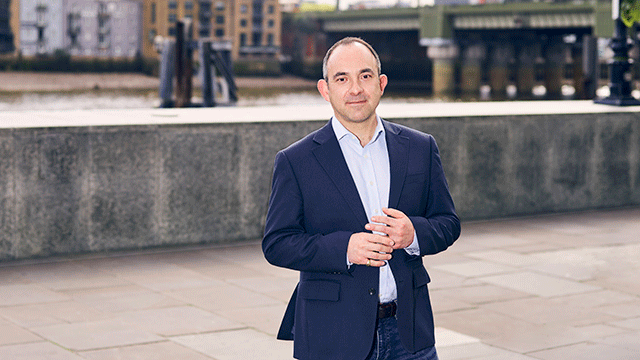EDITOR’S COMMENT Landsec has warned that our cities could become unliveable in as little as a decade. A scary thought? Definitely. A realistic view? Probably. And even if it is not realistic, it is a thought that should be vocalised.
I have written here – too many times probably – that this sector has the power to effect change. The power to make things better. But as much as it has that power, it also has the ability to do nothing and to destroy.
Landsec’s prediction of a “problematic future” – a dystopian view of our cities in which urban planning and construction take no heed of their environmental or societal impacts – is terrifying.
Imagine our cities becoming filled with poisonous air, poverty, unrest, sadness and loneliness. Places filled with buildings that no one wants to live, work or play in. Stranded assets that no-one wants to invest in.
If the sector does nothing, if it fails to transform and to truly value the planet and people, this is the future. If our government fails to put in place the mechanisms to allow our sector to do those things, this problematic future is as little as 10 years away, says Landsec and its panel of big thinkers.
But, as great a headline as “UK cities to become unliveable in 10 years” is, this outcome is the least likely future, according to Landsec. The “probable future” is one where the sector and our cities are adaptable and evolving. It is a future where we have put retrofit first, where public and private sectors are working together with a single goal.
In this probable world, Landsec sees itself and its peers expanding beyond their original purposes, creating space for meanwhile use, charities and social impact instead of just chasing income. In this future, social infrastructure has become crucial with landowners and developers dedicating space for community use, for libraries and public parks.
In this future, our cities are decentralised, self-sufficient but still part of the wider UK community. Data is open source, every city and building is digitised and communities can participate more fully in the future growth and development of their cities.
“Probable” sounds pretty perfect to me.
I love both the doom of what not doing means (remember our pledge: see, listen, do) in this research and the optimism of what should be able to be achieved.
But I’m torn. There is nothing I love more than being a champion for this sector’s ability to make a difference. There is a big part of me that is a big believer that we are moving in the right direction – my inbox has pinged loudly this week with news of more and more businesses becoming B Corps and changing their corporate governance to value purpose just as much as profit – but there’s the devil on my shoulder telling me to look at the bigger picture. To look more closely at the evidence.
For every Landsec, GPE, Derwent, Elllandi, TFT and Knight Frank that we talk to, that we hear the passion and will to do the right thing from, there are 10, 20, 100 more property owners, advisers and investors out there that shrug their shoulders. Especially in this environment.
As purse strings tighten, as more and more plans to bring growth back to the UK falter, with lenders calling in receivers on giant gigafactories and thousands upon thousands of much needed new homes and communities, it feels increasingly difficult to believe in Landsec’s probable future.
It is undoubtedly the pessimist in me – and a mild obsession with The Handmaid’s Tale – but while I’m not convinced dystopia is just a decade away, without fundamental change, it does feel more probable, doesn’t it?
Prove me wrong. Please.
To send feedback, e-mail samantha.mcclary@eg.co.uk or tweet @samanthamcclary or @EGPropertyNews











